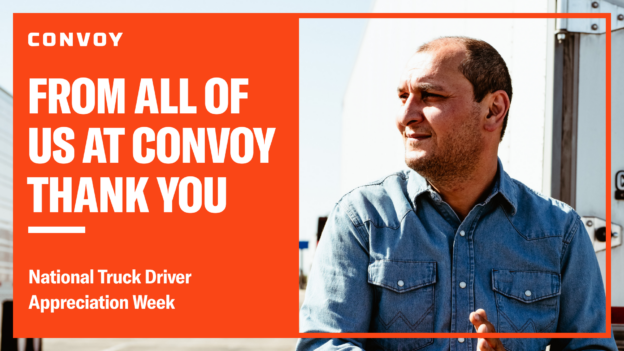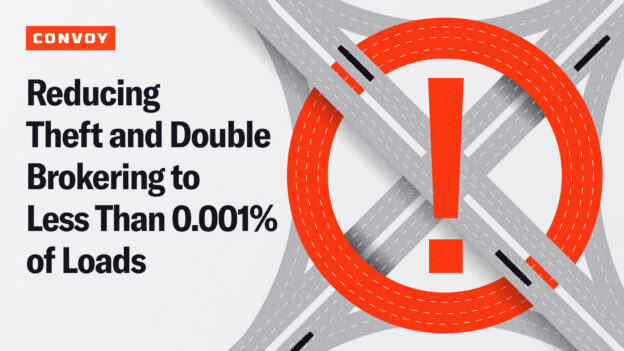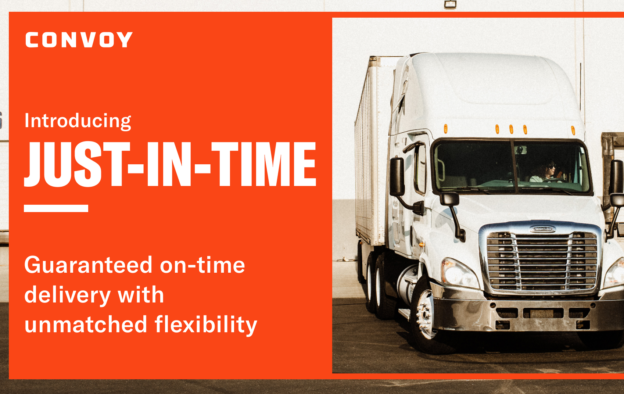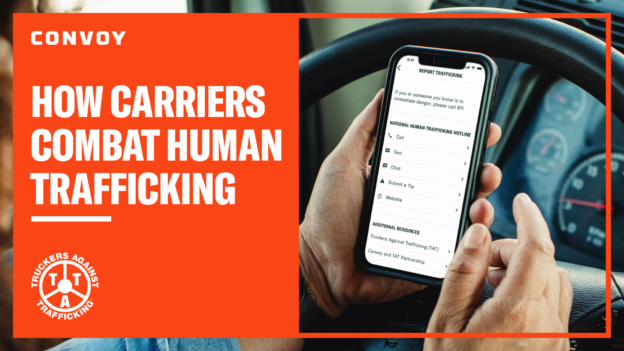The Importance of #NoEmptyMiles
Convoy News, Sustainability • Published on November 10, 2021
Sustainability has been important to me and many Convoy employees since long before we launched the company and set our mission: “To transport the world with endless capacity and zero waste.”
As a kid growing up in the Pacific Northwest, I was surrounded by nature. My family embraced this and most of the vacations and adventures we went on involved camping, backpacking, or road trips to visit national parks. We had the opportunity to enjoy what had been preserved by previous generations, and while I didn’t understand the broader concepts of sustainability at that time, I knew that it was important that we didn’t lose what we had.
The first time that I started to get invested in this was in the 5th grade. For my science class, I developed an independent project to test the water quality of streams around Seattle, including taking samples and conducting an analysis of the water using cultures to see what bacteria it contained. Later that same year I asked my parents to take me to Seattle City Council debates in advance of an election, so that I could hear the environmental policies of each candidate.
As an adult I began to understand sustainability in a different way. I realized that it isn’t just about preserving what’s in front of me right now, for me to use in my life. What matters is ensuring that our planet stays healthy overall so that people everywhere can continue to live and thrive for generations to come. The earth is resilient, but not invincible. Recent weather events have emphasized how fragile the balance is.
When Grant Goodale and I started Convoy, we saw an opportunity to make the industry more sustainable by creating efficiencies and reducing waste. We wanted to create a great business, but we also wanted our careers to be part of a greater storyline about changing an industry for the better. There were two areas that we had in mind. The first area was eliminating environmental waste, specifically carbon emissions, by reducing empty miles and time spent burning fuel while idling at a facility. The second was making the trucking industry more sustainable for truck drivers with faster payments, more security, and better conditions on the road. If we were successful in doing both of these, we knew that we could make a difference and create an extremely valuable business at the same time.
That same opportunity is still huge today. I believe that it’s our responsibility to realize the potential of what’s possible. That’s something that’s core to our business today, and something that we want to inspire others in our industry to also see.
Introducing #NoEmptyMiles
Today, about 35% of the time when a truck is running down the highway, it isn’t pulling a load. Addressing this can be a win-win-win for all sides of the industry: it cuts down on environmental waste, saves money spent on unnecessary miles, and reduces wasted time for drivers, helping them be more productive when away from home.
I’m excited to announce that today Convoy is launching a new, sustainability focused campaign called #NoEmptyMiles.
The goal of this campaign is to start new discussions around waste in the freight industry. We chose #NoEmptyMiles to represent our sustainable impact because it’s a problem that every company has today – and can take action to solve – but we all need to be part of the solution.
It’s my hope that #NoEmptyMiles draws attention to the greater problem of waste in freight, the importance of sustainability in the supply chain, and the possibilities that exist in a zero waste world.
Taking Action Together
“Perfection is the enemy of progress.” – Winston Churchill
This is a problem that we can tackle together. The best way to reduce empty miles is to start measuring them and setting goals against them, even if done in a completely imperfect or imprecise way. Start by writing down two or three specific areas where your operations generate empty miles directly or via your suppliers. For each of these areas, determine how you will measure, track, and report progress. Let your team know that it is rough, and maybe only a proxy for actual empty miles. The next time you set out to plan your goals and priorities, inspect what you’ve done and challenge your team to think about how you can do better. Eventually, you’ll discover new ways to measure the impact you’re having, and soon you’ll be ready to share your goals with your partners, customers, etc. This process was definitely true for Convoy when we started focusing on empty miles. We didn’t know how to measure our progress at first, but setting a goal forced us to learn, and eventually build technology to help us get better in achieving it. Five years later, we released Ship Responsibly, our first sustainability report, and we’ve since set our most ambitious goals for the future.
Reducing empty miles is an area where all of our environmental and business interests are aligned, and that alignment increases the chances that we can come together to make quick and broad progress. At Convoy, we have an incredible team that thinks a lot about sustainable networks and programs. We’re always happy to talk to companies about steps they can take themselves, or how we could work together in pursuit of this common goal.
I hope you’ll join us in our pursuit of #NoEmptyMiles in trucking. Together, we can create a new era of sustainable freight.



